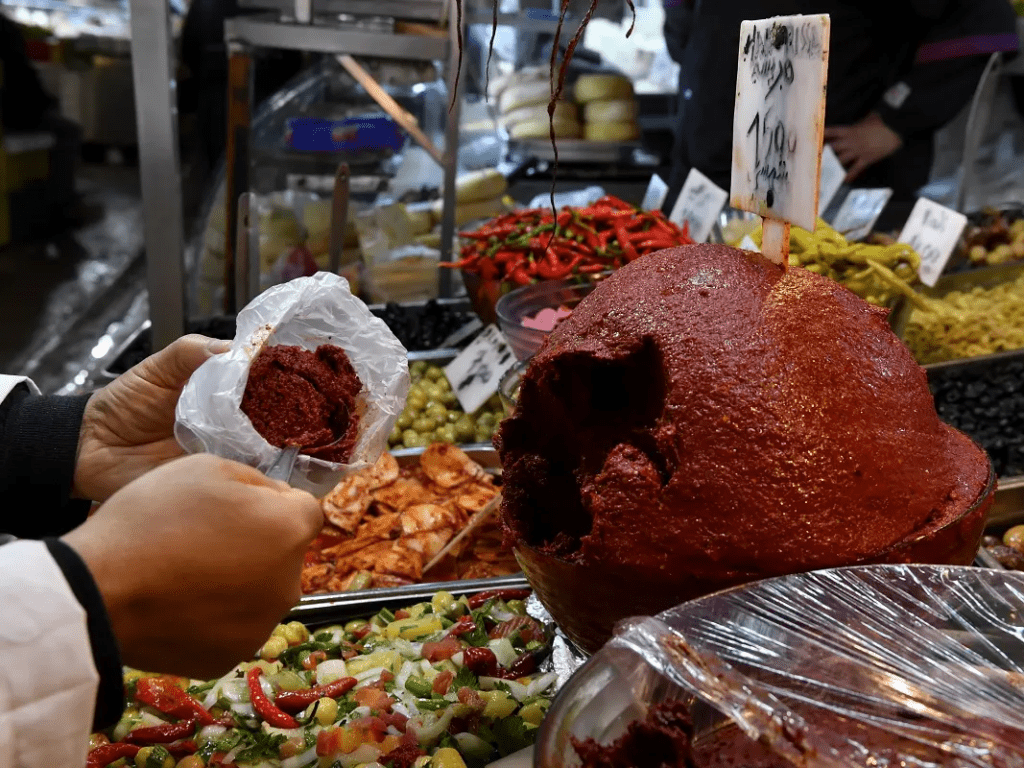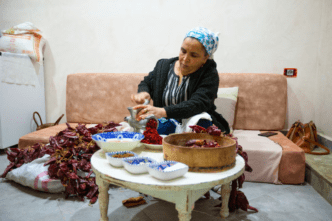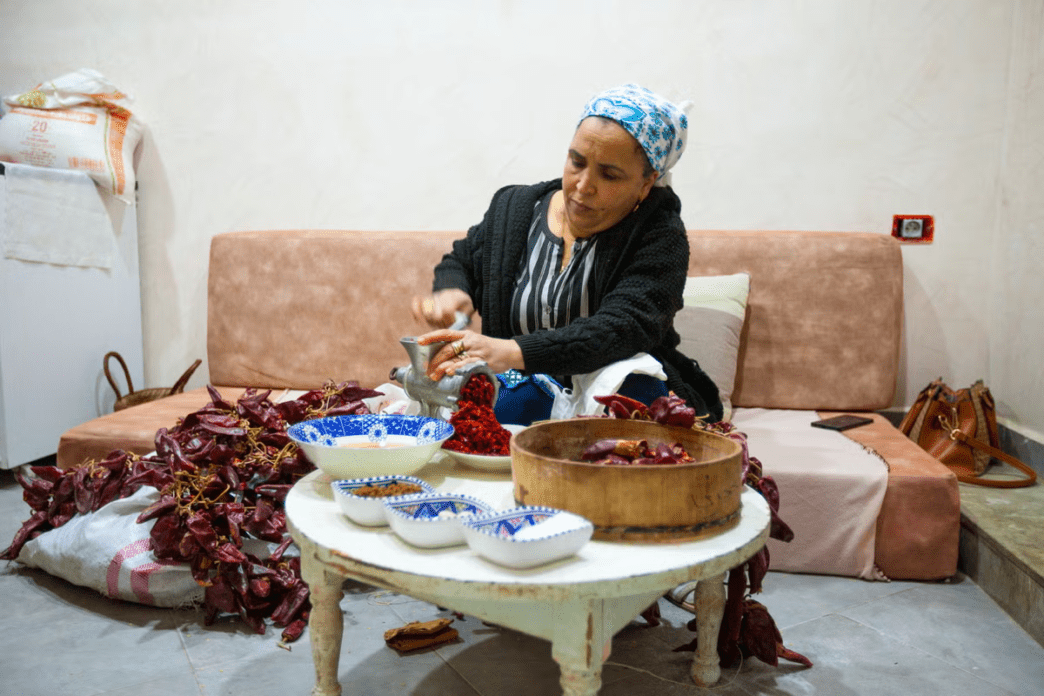A Celebration of Tradition in Nabeul
In Nabeul, Tunisia’s harissa-producing hub, local chef and harissa specialist Chahida Boufayed showcases her love for the condiment through a traditional recipe.
Using organic, chemical-free peppers, garlic, vinegar, and spices, she creates a bright red, tangy paste that has become a staple in Tunisian homes and restaurants.
Boufayed shares, “It’s a love story between me and harissa. I don’t make it for money but out of passion.”

The Harissa Festival’s Growing Appeal
Now in its 10th year, Nabeul’s Harissa Festival draws crowds from across the globe. Visitors flock to taste harissa in its many forms—spread on bread, paired with eggs and fish, or as a flavorful topping for local delicacies like merguez sausages, brik, and fricassées.
The festival’s popularity surged after UNESCO recognized harissa as part of the intangible cultural heritage in 2022, describing it as “an integral part of domestic provisions and the daily culinary traditions of Tunisian society.” This global recognition has brought Nabeul to prominence as a cultural and culinary destination.
Harissa’s Journey to Global Recognition
Harissa, sometimes called North Africa’s answer to Sriracha, has deep roots in Tunisian tradition. Women traditionally prepare it by sun-drying Baklouti red peppers, deseeding, and grinding them into a paste. The name “harissa” originates from the Arabic word “haras,” meaning “to crush.”

Harissa producer Kabira Berrich notes its diverse variations, including steamed, traditional, and smoked harissa. Each type reflects a unique preparation method, showcasing the creativity and skill of Tunisian artisans.
A Cultural and Economic Boost for Nabeul
Zouheir Belamin, President of the Association for the Preservation of the City of Nabeul, emphasizes the festival’s impact: “This event highlights harissa’s role in our cultural identity and has made Nabeul a hub for handmade and artisanal products. It’s also a significant draw for tourists.”
Crossing Borders and Winning Hearts
Already popular in North Africa and France, harissa is now gaining global acclaim, from the United States to China. Its inclusion on UNESCO’s heritage list, alongside Ukrainian borscht and Cuban rum, underscores its importance as a culinary treasure.
Nabeul’s Harissa Festival is more than a culinary showcase—it’s a tribute to the artisans and traditions that keep this heritage alive. As harissa crosses borders, it continues to win over palates worldwide, cementing its place as a symbol of Tunisia’s rich cultural tapestry.
Read More:















